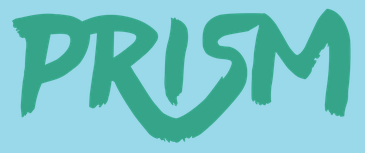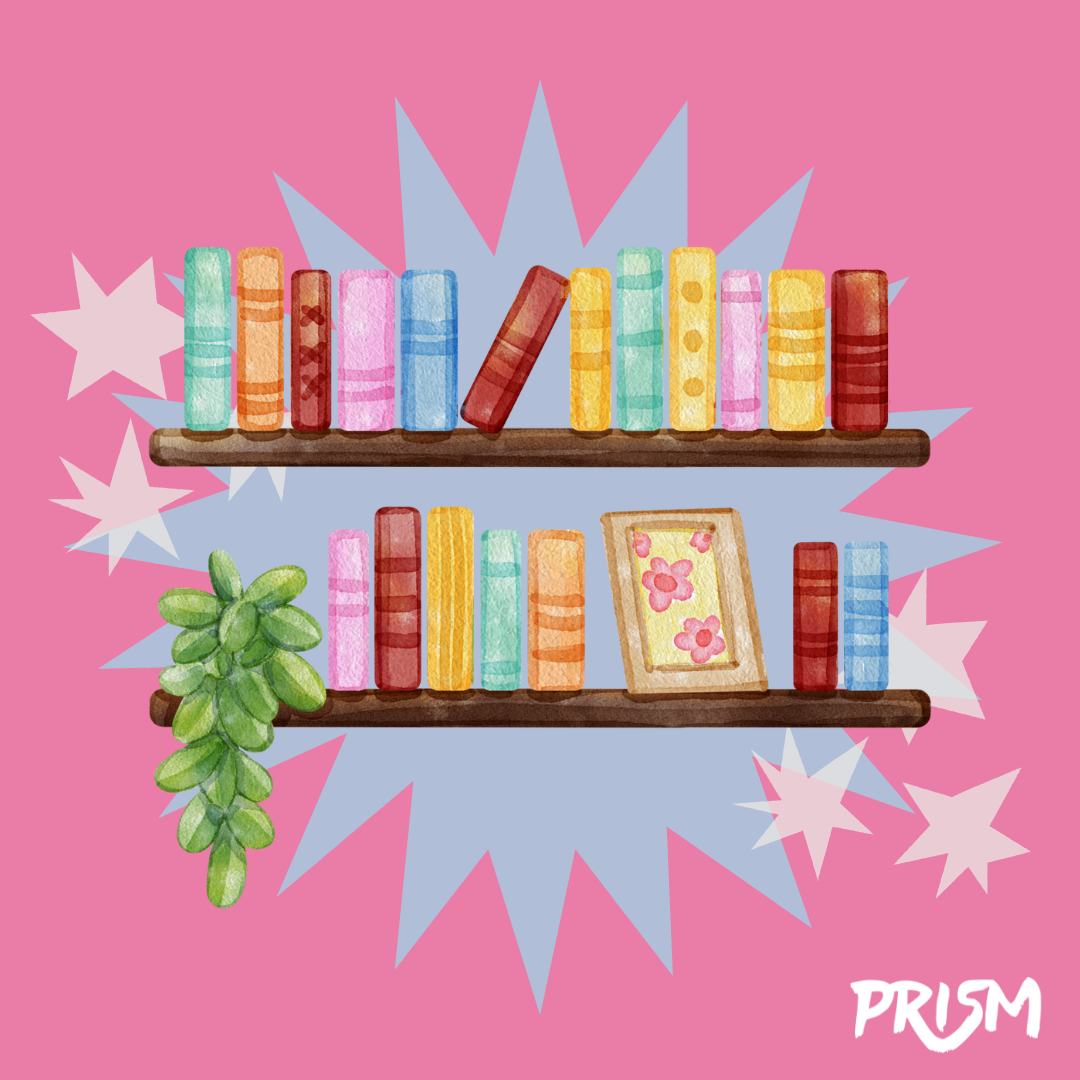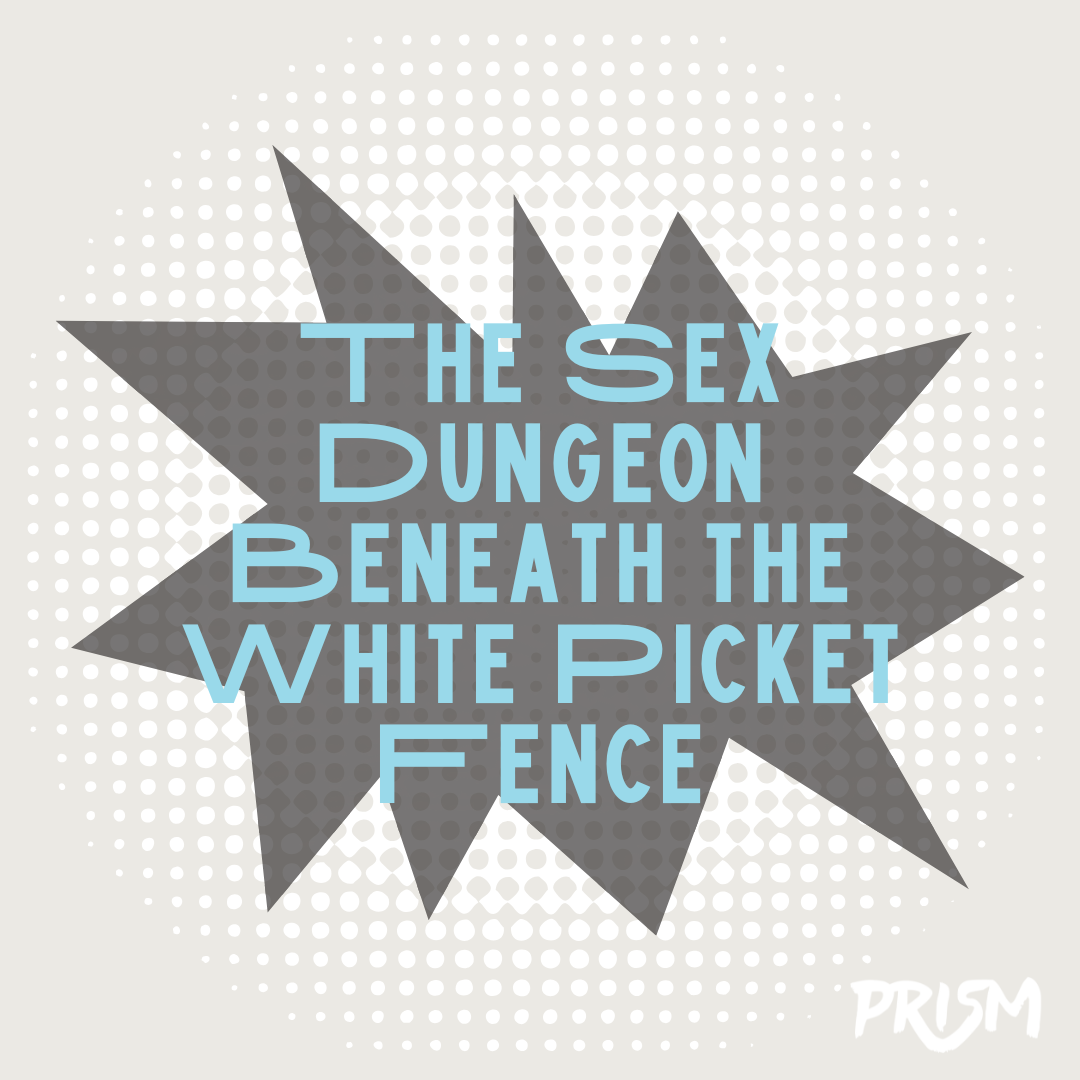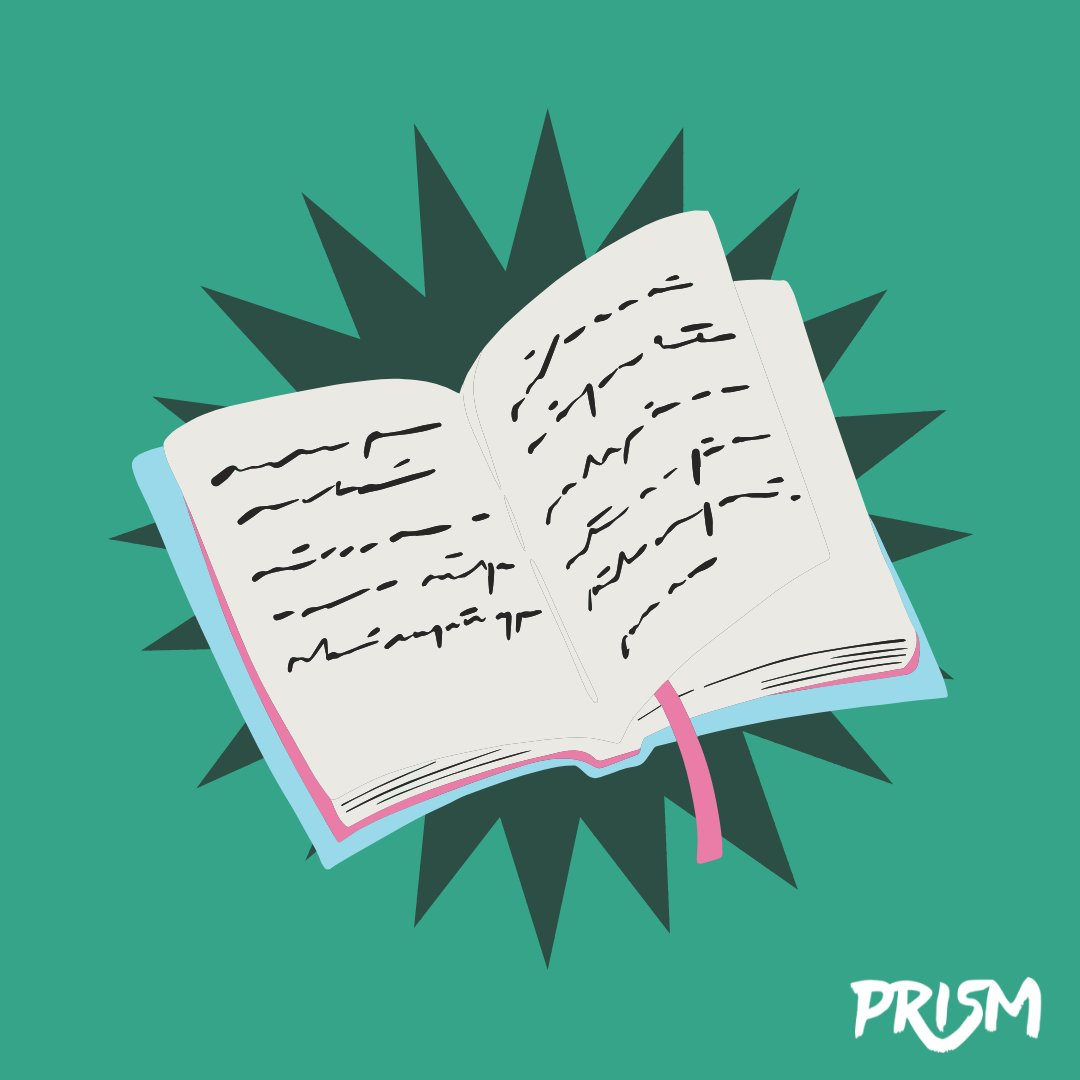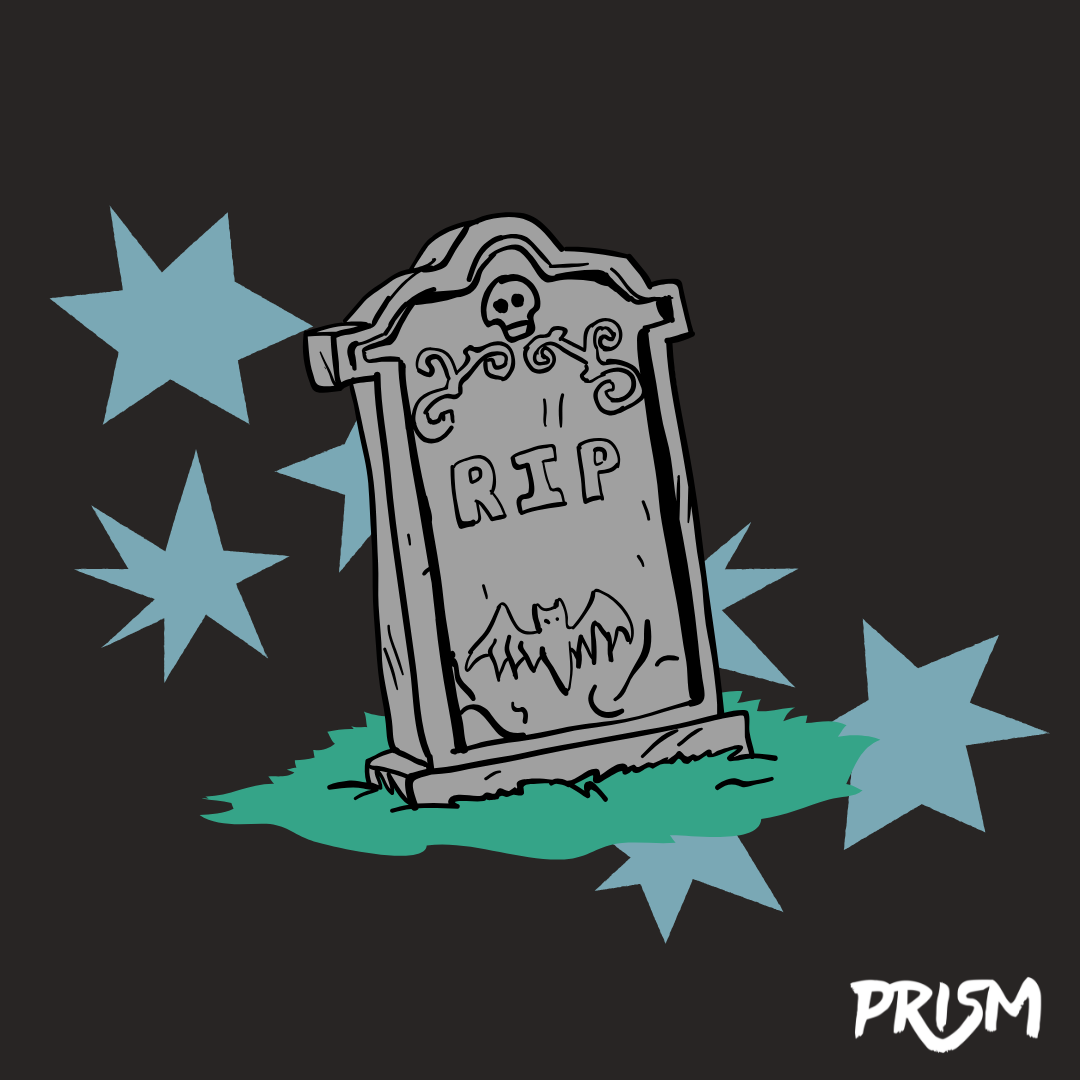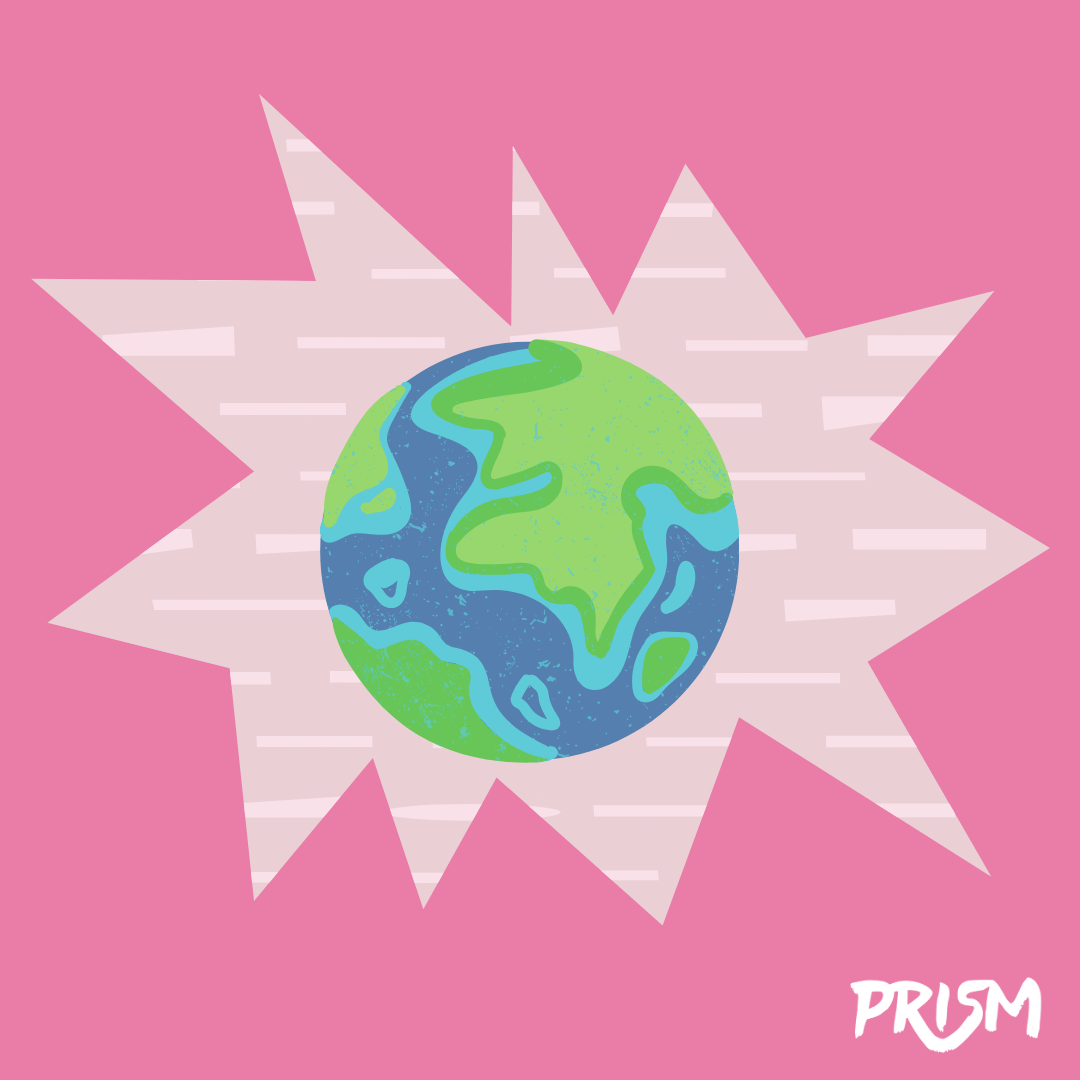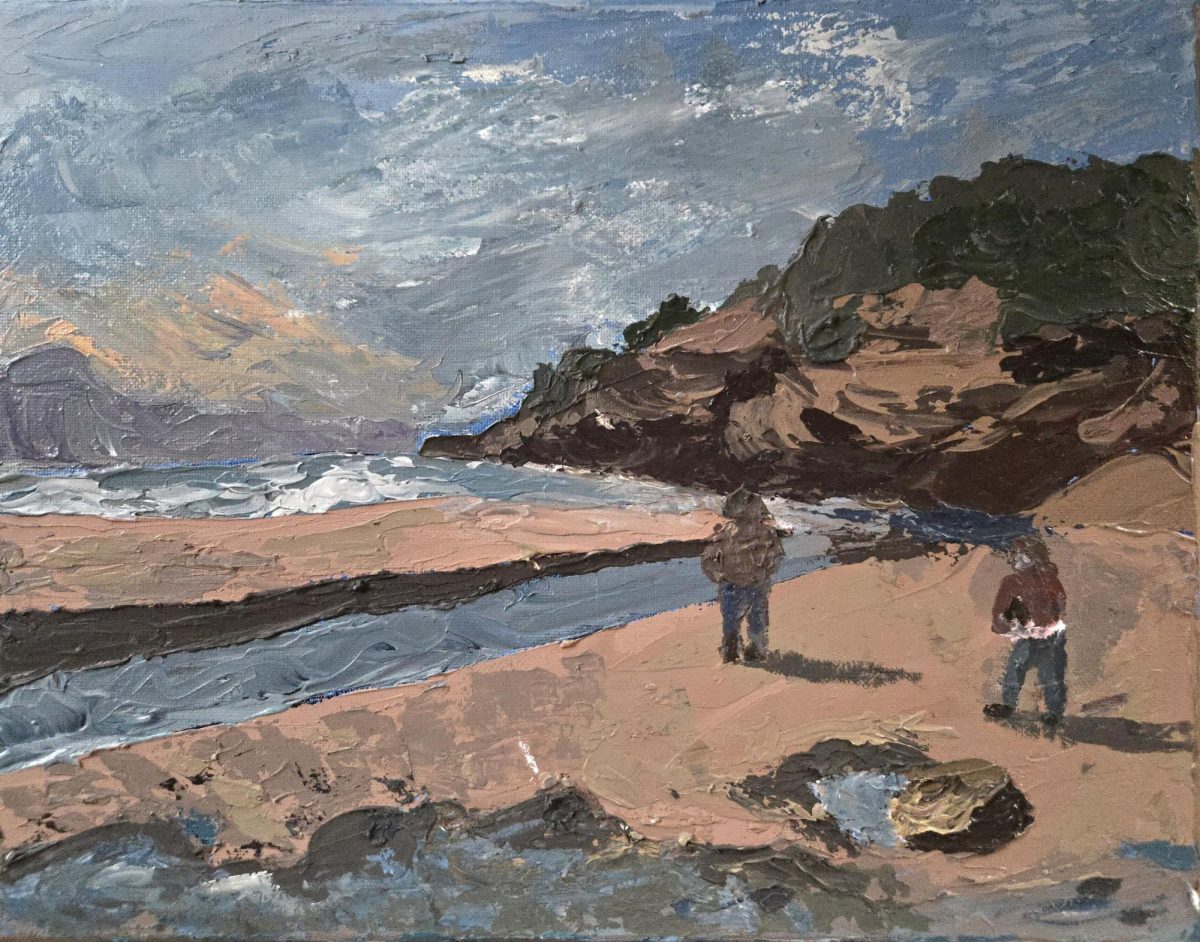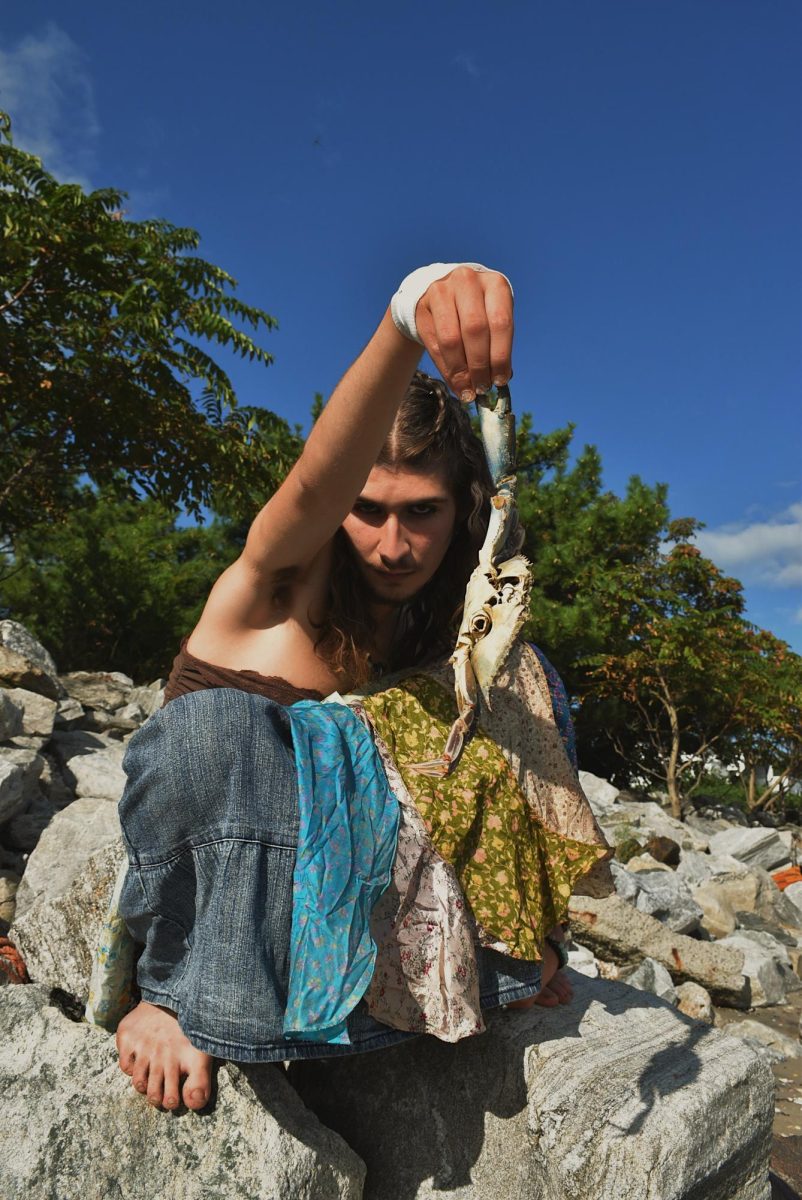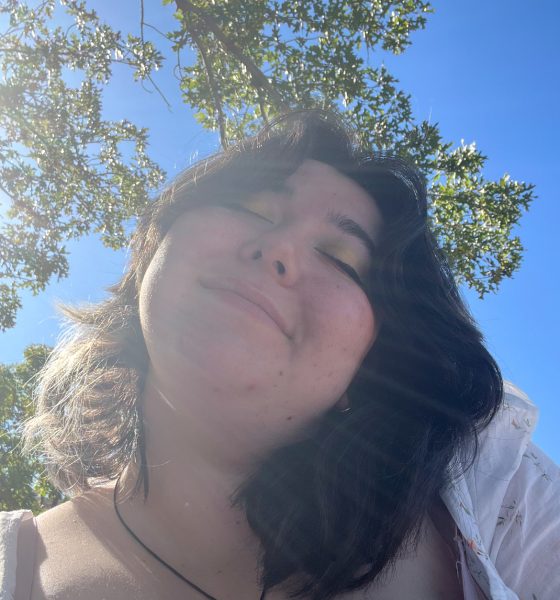*Please note that content warnings may be incomplete.*
- Warrior Girl Unearthed by Angeline Boulley — ★★★★☆
CONTENT WARNINGS: racism, sexual assault, violence against Native people, kidnapping
“You jump, and I’ll catch you. Every time. I’m your ride or die, niijiikwe.”
Genre: Young adult mystery, contemporary fiction
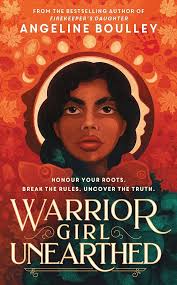 This book is the sort-of-sequel to my favorite read of 2023, Firekeeper’s Daughter. Warrior Girl Unearthed takes place ten years after Boulley’s debut novel and focuses on Perry Firekeeper-Birch, the niece of Daunis, the main character from FKD. I did prefer the first book to this one due to the way I related a much more to Daunis’ character than I did to Perry’s. Either way, I appreciate how this book was informative about the problems with the Native American Graves Protection and Repatriation Act (NAGPRA) and the epidemic of Missing and Murdered Indigenous Women (MMIW) while still maintaining the entertaining, emotional tone it promises. As an Indigenous person, NAGPRA and MMIW are issues that are very close to my heart and I’m grateful for this book giving them some of the pop culture attention they deserve.
This book is the sort-of-sequel to my favorite read of 2023, Firekeeper’s Daughter. Warrior Girl Unearthed takes place ten years after Boulley’s debut novel and focuses on Perry Firekeeper-Birch, the niece of Daunis, the main character from FKD. I did prefer the first book to this one due to the way I related a much more to Daunis’ character than I did to Perry’s. Either way, I appreciate how this book was informative about the problems with the Native American Graves Protection and Repatriation Act (NAGPRA) and the epidemic of Missing and Murdered Indigenous Women (MMIW) while still maintaining the entertaining, emotional tone it promises. As an Indigenous person, NAGPRA and MMIW are issues that are very close to my heart and I’m grateful for this book giving them some of the pop culture attention they deserve.
- White Cat, Black Dog: Stories by Kelly Link — ★★★★★
CONTENT WARNINGS: violence, language, sexual content
“And so, some think it may be possible to survive their presence if only one can enter into a state in which one is not afraid. Only we are so very afraid of them. How could we not be?”
Genre: Short story collection, fantasy and magical realism
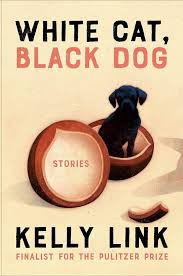
This collection of speculative fiction fairy tale retellings was packed with fabulous reimagining, bright bursts of humor, and visceral descriptions. I am a big fan of modern fairy tales, and I don’t think I’ve ever seen anyone do it like Kelly Link does it. She knows exactly when to remain consistent with the well-known stories and when to stray into the strange, to wander into the weird. My favorite stories in this collection are “Prince Hat Underground” and “Skinder’s Veil,” but each story felt wonderfully curated, and even the stories based on fairy tales unfamiliar to me were riveting throughout. There is something dark lurking under the surface of these stories, like I can feel the ridged spine of a sea monster brushing up against the surface tension of the words, almost never breaking through.
- Ninth House by Leigh Bardugo — ★★★★★
CONTENT WARNINGS: child abuse, sexual assault, substance abuse, general violence
“Mors irrumat omnia. Death fucks us all.”
Genre: Adult urban fantasy
This was my second time reading Bardugo’s first adult fantasy novel, and I stand by my conviction that it’s one of the most immersive and interesting urban fantasies of recent years. The word “dark” doesn’t begin to cover the energy of this book, so tread lightly and heed the content warnings, but if occult magic, secret societies, and century-old mysteries appeal to you, this is a great read. Keep in mind that when I say adult fantasy, I do mean adult – this is a great departure from the tone of Bardugo’s widely successful Grishaverse. It was clearly written with great intelligence on and reverence for the setting and subjects, and this will not be my final time reading this book.
- Hell Bent by Leigh Bardugo — ★★★★★
CONTENT WARNINGS: sexual violence, police violence, racism, substance abuse
“All worlds are open to us. If we are bold enough to enter.”
Genre: Adult urban fantasy
I reread Ninth House to prepare myself for this book, and not only did the sequel exceed my expectations, it may have surpassed the first one for me. Something about the story in Hell Bent felt more mature, less chaotic, and while I reveled in the chaos of Ninth House, I appreciated how much thought went into the succession of events in the sequel. The story progressed very naturally with interesting and satisfying paths for each character, and the found family energy reared its lovely head much more strongly here. The Alex Stern series is one of the best that somehow allows me to escape into a new world while still remaining in this one.
- Weyward by Emilia Hart — ★★★☆☆
CONTENT WARNINGS: domestic violence, sexual violence, incest, suicide attempt, abortion
“Perhaps one day, she said, there would be a safer time. When women could walk the earth, shining bright with power, and yet live.”
Genre: Adult low fantasy/magical realism, historical fiction
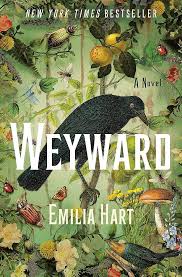
Please heed the content warnings listed above: this book is about as dark as it can get when it comes to violence against women. I picked it up because the description sounded like it checked all of the boxes in my “favorite genres” column: feminist horror, fantasy, historical fiction, etc. For the most part, I was not disappointed; the interweaving of the multiple narrators’ lives is done quite well. The writing style was interesting and enchanting without being over-exaggerated. The magic/fantasy element is light. It doesn’t play as big a role as the perceptions of these women’s power by society regarding how they are treated. I wish there was slightly more diversity in the three main characters; it’s not that they were too similar, but there were so many opportunities to highlight intersectionality that I feel were bypassed.
- Gathering Moss: A Natural and Cultural History of Mosses by Robin Wall Kimmerer — ★★★★★
“With words at your disposal, you can see more clearly. Finding the words is another step in learning to see.”
Genre: Nonfiction, nature
Kimmerer’s ability to interweave her botanical knowledge with the traditional knowledge of both her own Potawatomi heritage and the traditions of other Native American groups into such a poetic voice is astounding. This book collects stories from Robin’s personal experiences with mosses, from her grad school research to the summer trips she took with her daughters every year. Her voice was both intellectual and accessible, personal and relatable, poetic and scientific. This is one of those books that you can read ten times and still learn something new. It teaches you how to pay closer attention to the world around you and offers lessons from nature in a refreshing and digestible way.
- The Hunger Games by Suzanne Collins — ★★★★★
CONTENT WARNINGS: child abuse and death, substance abuse, general violence
“Happy Hunger Games, and may the odds be ever in your favor!”
Genre: Young adult dystopian fiction
I don’t know that there’s much to say about this book, indeed this whole series, other than, if you haven’t read it yet, you really, really should. Dystopian fiction has never been my thing, and it’s been ages since I read The Hunger Games series for the first time, but this was one of the best reading experiences I’ve had in a while. There’s a reason the series is held in high regard as one of, if not the best, contemporary young-adult dystopian novel series. The timeless quality of the content is both frightening and empowering. Concerning the first book specifically, Collins gives a great, cohesive introduction to the world and the characters.
- Catching Fire by Suzanne Collins — ★★★★★
CONTENT WARNINGS: child abuse and death, substance abuse, general violence
“Remember, girl on fire…I’m still betting on you.”
Genre: Young adult dystopian fiction
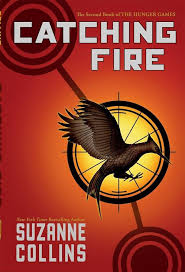
This is my favorite of the series. And if that is entirely to do with Finnick Odair and Johanna Mason, so be it. In all seriousness, as the title implies, this book is where things begin to pick up. Tonally, it rests somewhere between the frantic desperation for survival of the first book and the traumatized depression that winds itself through Mockingjay to create that perfect voice of a girl who knows she has a modicum of power but still has more to lose before she can put it to use. The continuation of the story felt strong, and the further development of the dystopian government led by President Snow in the Capitol was masterfully crafted.
- Mockingjay by Suzanne Collins — ★★★★★
CONTENT WARNINGS: child abuse and death, substance abuse, general violence, war
“Fire is catching! And if we burn, you burn with us!”
Genre: Young adult dystopian fiction
If you want to talk about committing to a dystopia, this is the series finale that does it. I can’t call it a happy ending, but it is a good one, one that feels earned after everything that led up to it. I can’t say I enjoyed every second — my favorite character is Finnick, after all — but every character and plot line turned out exactly as they should have given the way Collins built them up through the first two books (once again, except maybe Finnick, but I digress). I know people have their issues with the epilogue, and I can understand why, but I for one am just glad that there was at least a little bit of sunshine; I’m afraid I may have been too depressed to write this review otherwise. It was a solid ending to an unforgettable classic.
- The Ballad of Songbirds and Snakes by Suzanne Collins —
CONTENT WARNINGS: child abuse and death, starvation, animal abuse, body horror
“Snow lands on top.”
Genre: Young adult dystopian fiction
I have already seen the recently released movie based on this book (I know—watching the movie before reading the book? heresy!) so I tried to set my preconceived notions and my feelings about the story aside. I can now say that the movie was splendidly made and acted, but reading this riveting prequel to the iconic Hunger Games trilogy is a different experience entirely. Collins masterfully weaves in the seeds of Coriolanus Snow’s toxicity; the obsessions with control and power are there from the start if you know where to look. And yet, she also does what the best authors do when it comes to villains: she made me feel for him. The book is wonderfully arranged and feels complementary to the original series, twisting expectations by providing a backstory in the form of a mystery. It was a highly enjoyable and enthralling read.
- Braiding Sweetgrass: Indigenous Wisdom, Scientific Knowledge and the Teachings of Plants by Robin Wall Kimmerer — ★★★★★
“…all flourishing is mutual.”
Genre: Nonfiction, nature
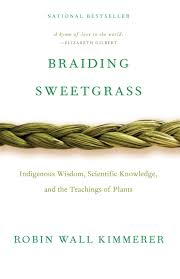
There is simply so much to absorb from the lessons in this book that any kind of abridged review would feel inadequate. I will begin with the big picture: Kimmerer introduces her readers to the concept of reciprocity with the land, and everything that comes after reinforces this idea in a way that builds on our understanding of it and reveals to us things about our relationship with the earth that we have likely never considered. The interweaving of traditional ecological knowledge (TEK), scientific knowledge, and human-nature connections and morality is brilliant and engaging. Each chapter, organized among five sections, offers a story or lesson about interacting with the natural world, each informed by astute scientific observations and personal experiences. If you’re looking to pick up a nonfiction book that blends poetic voice and scientific and cultural knowledge, I don’t know that there’s a better example out there.
- Blood Sisters by Vanessa Lillie
CONTENT WARNINGS: substance abuse, kidnapping, human remains, general violence
“I told the girls we’d always be safe. A promise I had no business making. I said I’d protect them both. Another promise I’d break.”
Genre: Mystery thriller
Lillie tells a compelling, dynamic story of kinship and sacrifice that puts the contemporary issues facing Native American communities into a practical perspective. This story is difficult and demanding and ultimately rewarding. On a technical level, the novel is well-paced, spreading the action and plot development out across the chapters so the reader never feels rushed or bombarded. The mystery aspect was well-integrated, with plot twists coming at the perfect times in a balanced mix of satisfying and surprising. As a fellow Cherokee nation citizen, it was moving to see the Cherokee language not just included, but interwoven into the fabric of the narrative. I did expect a little bit of a stronger arc for the main character, and the ending left a little to be desired, but overall it was an engaging read.
- Transformations by Anne Sexton — ★★★★★
“Give me your skin/as sheer as a cobweb,/let me open it up/and listen in and scoop out the dark.”
Genre: Poetry, fairy tales
In this bewitching collection, Sexton presents her versions – her transformations – of 17 fairy tales by the Brothers Grimm in a new light, informed by her own dark humor and personal connections to the well-known stories. They are retellings in my favorite sense; they keep the energy of the original material while creating a new dimension specific to the teller, offering the tale in a way that couldn’t be done by anyone else. Sexton begins each poem with a bit of an introductory sub-poem, alluding to her connections to the stories and things to look for in her transformations. It can’t be said there are many happy endings, or even morals, in most of Anne’s retellings, but they shine a light maybe not on what fairy tales are supposed to do, but what they actually do to us as adults and the children we used to be.
- What the River Knows by Isabel Ibañez — ★★★★☆
CONTENT WARNINGS: alcoholism, violence
“In Egypt? We’re all looking for something.”
Genre: Historical fantasy
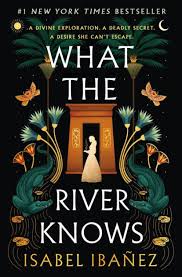
I had very high hopes for this book, and for the most part, they were met. The story was atmospheric, witty, and enthralling, but it was also not entirely what I expected. There was more mystery than I anticipated, and less magic, but all of it felt purposeful. The magic that was promised in the synopsis was minimal, but though it was employed sparingly, it felt cohesive with the plot. Like a lot of people, I had an Ancient Egypt phase as a kid, and this tale satisfied those childhood interests while also speaking to the adult in me who views every act of colonization through a critical lens. The one thing I wish was used as sparingly as the magic was the absolute refusal of the leads, Inez and Whit, to communicate with each other. Miscommunication is one of my least favorite tropes, and while this wasn’t exactly that, they did leave me tearing at my hair a couple of times.
- A Far Wilder Magic by Allison Saft — ★★★★☆
CONTENT WARNINGS: child neglect, animal death, violence
“Girls like her don’t get to dream. Girls like her get to survive.”
Genre: Low fantasy, romance
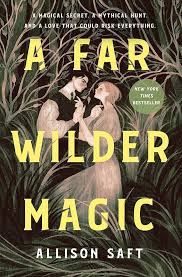
This is a hard book for me to review because, in my heart, I feel that it deserves 4 stars, but I can’t fully explain why. There is a lot that confuses me about this book. First of all, I can’t seem to pin down the setting; there is too much that is too similar to the real world, but none of it fits in a realistic timeline, and all the place names seem vaguely European. Also, there are a lot of moments in the book that seem to create loose ends. Several times, I felt like the plot was preparing to branch off into a side plot, but those curious moments never came to fruition. Other than those small confusions, Saft is a master of relationship dynamics, and I was intrigued by her storytelling. It was dark but not depressing, mysterious but not frustrating, emotional but not melodramatic (except when it needed to be). I would read more from this author.
- The Fountains of Silence by Ruta Sepetys — ★★★☆☆
CONTENT WARNINGS: child death, war, violence
“Silence has a voice of its own.”
Genre: Historical fiction
Sepetys is one of my favorite authors when it comes to historical fiction. She has a knack for shining a light into the corners of history that are not often explored by the genre, especially the corners that are so close to the big popular topics that they often get overshadowed. She has certainly done this in The Fountains of Silence, which is about the dictatorship of Francisco Franco after the Spanish Civil War. The setting and the characters were wholly fascinating, but for a book with such quick pacing, it had surprisingly little plot. And it’s a longer book as well – over 500 pages – which makes me wish that there was just a little bit more going on. The ending was a bit of a surprise, but looking back, it casts a very intriguing light on the rest of the story.
- Native Guard by Natasha Trethewey — ★★★★★
CONTENT WARNINGS: racism, death
“In my dream, / the ghost of history lies down beside me, / rolls over, pins me beneath a heavy arm.”
Genre: Poetry
As a Pulitzer Prize Winner, it’s no surprise that this book is one of the most powerful and enthralling poetry collections I have read in a while. Trethewey (an ex-Poet Laureate of the United States), is the Southern-born daughter of a Black mother and white father. She does a masterful job of using language to unveil the realities of being connected to a place whose history is not in your favor and the ways she struggled because of it. She explores the pain of loving her homeland, watching her parents – whose relationship was not accepted where they lived in Mississippi – go through a divorce, and examining the modern state of affairs in her homeland. The language is simple but poignant and does not rely on big words and flowery filler to twist words into glorious new shapes.
- Postcolonial Love Poem by Natalie Diaz — ★★★★★
CONTENT WARNINGS: racism, colonialism, violence
“The rain will eventually come, or not. Until then, we touch our bodies like wounds — the war never ended and somehow begins again.”
Genre: Poetry
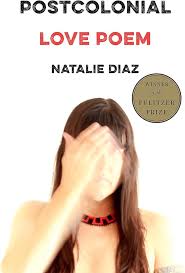
This collection is another winner of the Pulitzer Prize, and I couldn’t think of a more deserving book. Diaz has long been one of my favorite poets; her use of story and mastery of the connections among language are styles I often find myself emulating in my poetry. To call her a personal inspiration feels insignificant. In this collection, Diaz explores love and its power to act as a global force. Love and desire, for her, can be reparations and erasure, and can feel like being starved and glutted. She speaks both with urgency and with patience, and she speaks about things that I feel most people could connect to – and about things most people should be educated about. Her exploration of queerness as a Native woman is so potent, and I’m grateful I had the opportunity to absorb this collection.
- One Last Stop by Casey McQuiston — ★★★★★
CONTENT WARNINGS: homophobia, mention of a hate crime
“Maybe no good timing means there’s no bad timing either.”
Genre: Science fiction, queer romance
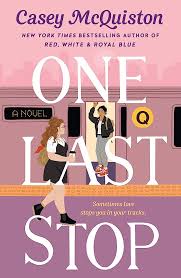
I don’t know that there’s a romance book out there that is more perfectly up my alley than this one. It has everything I love about the genre, from amazing characters to found family to a great setting – and even a speculative fiction twist! I’ve read two other Casey McQuiston books and loved both of them, so I’m glad this one lived up to my high expectations. It was witty and funny and emotional and swoon-worthy. Her voice, style, and characters provide me with such a sense of comfort that we – that is, queer people – often miss in popular media. She is inclusive without tokenization, and every moment brings something interesting. McQuiston mentioned in her acknowledgments that one of her goals for the book was to undo a particular trope when it comes to queer people in media and “Unbury [Our] Gays,” and she picked a very wholesome, charming, and most importantly, successful way to do that. I know this type of book isn’t for everyone, but it’s definitely for me.

